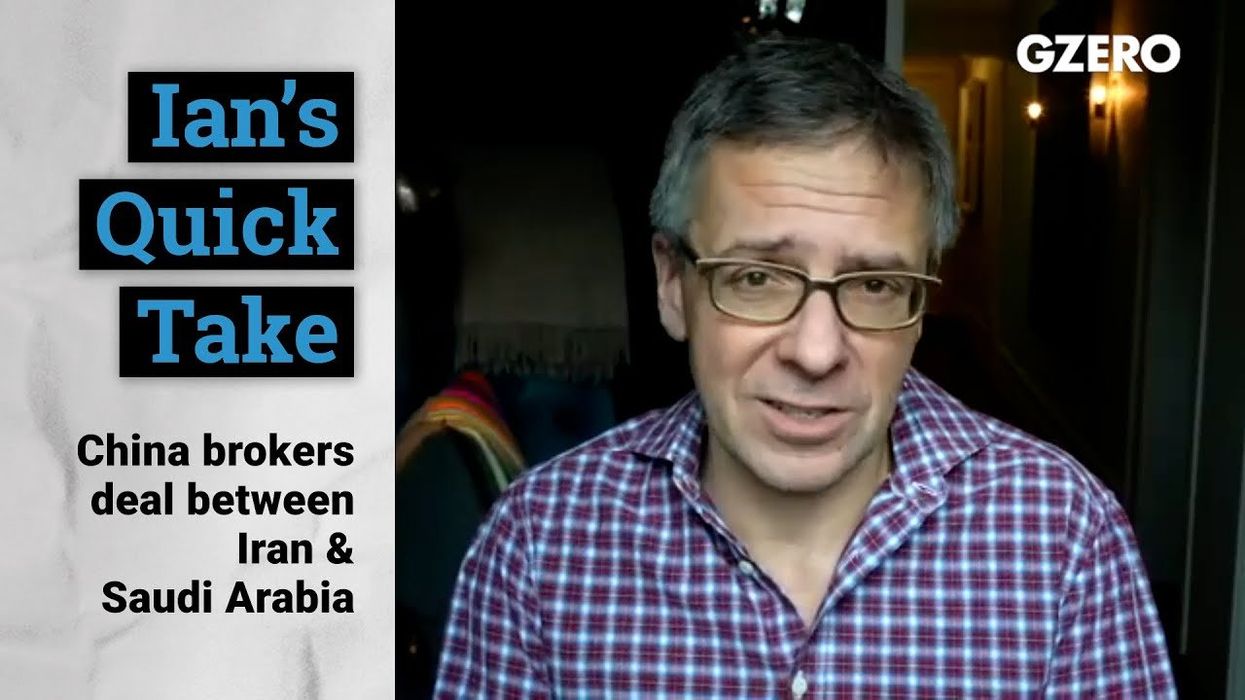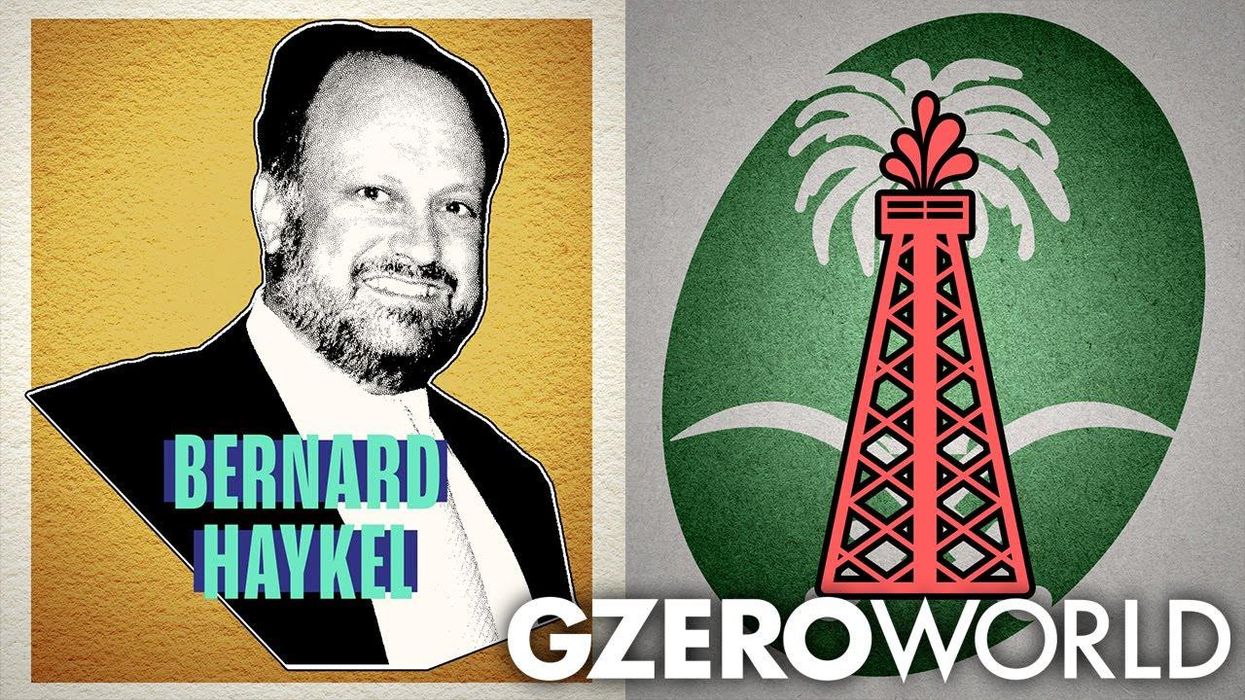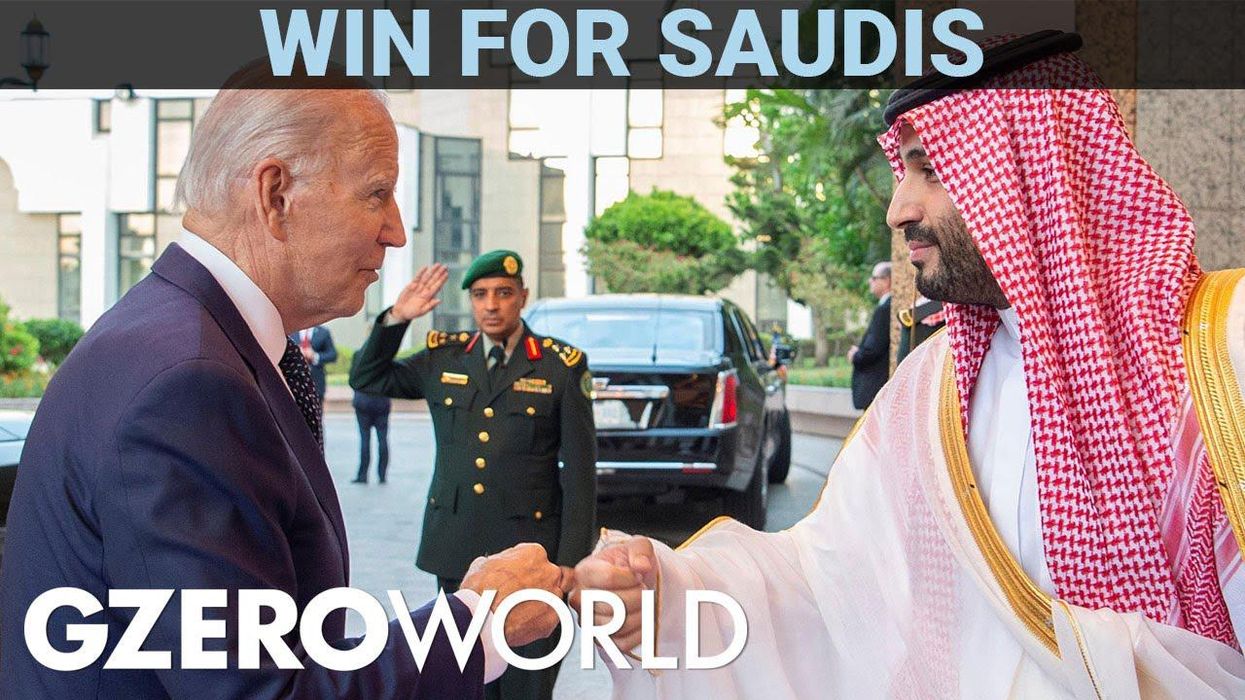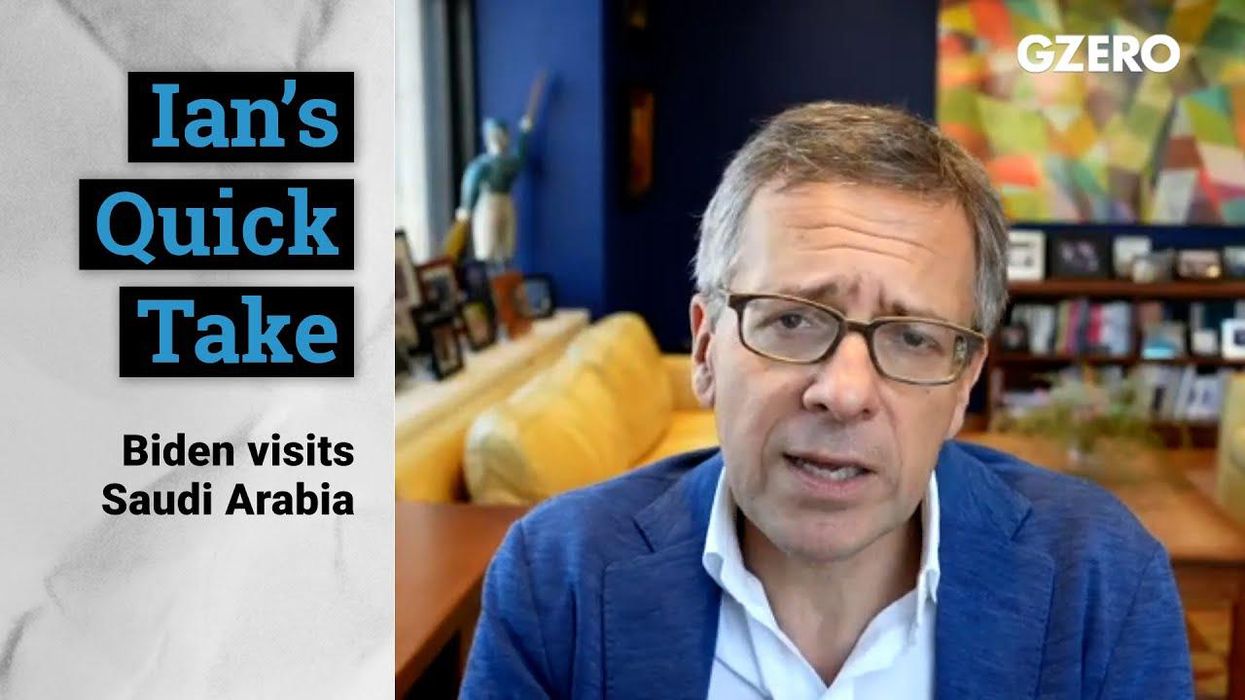Quick Take
China brokers deal between Iran and Saudi Arabia
Ian Bremmer's Quick Take: China's big announcement is a breakthrough diplomatic deal negotiated by Xi Jinping, between Saudi Arabia and Iran. That's a big deal for a China that historically would have played no leadership role in any major negotiations outside of things that are of critical national security importance in Asia, in their backyard. And here we have Xi Jinping announcing a deal that the Americans, the Europeans, literally played no role in and couldn't play a role.
Mar 13, 2023




